 Petzlover
Petzlover Chausie is originated from Egypt but Ojos Azules is originated from Mexico. Both Chausie and Ojos Azules are having almost same weight. Both Chausie and Ojos Azules has almost same life span. Both Chausie and Ojos Azules has same litter size. Both Chausie and Ojos Azules requires Low Maintenance.
Chausie is originated from Egypt but Ojos Azules is originated from Mexico. Both Chausie and Ojos Azules are having almost same weight. Both Chausie and Ojos Azules has almost same life span. Both Chausie and Ojos Azules has same litter size. Both Chausie and Ojos Azules requires Low Maintenance.
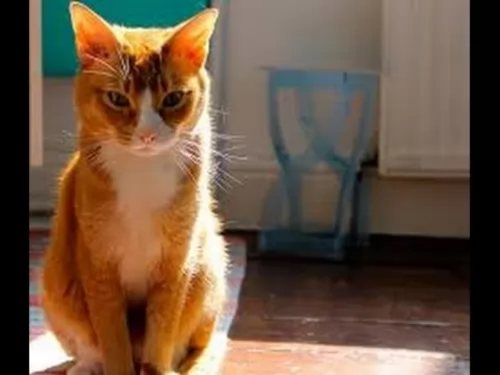 The Afro-Chausie came about from breeding a few individuals from a species of jungle cat which was native to India, Asia and the Middle East. In other words, this is a cross between a wild cat and a domesticated cat.
The Afro-Chausie came about from breeding a few individuals from a species of jungle cat which was native to India, Asia and the Middle East. In other words, this is a cross between a wild cat and a domesticated cat.
It was only in 1995 that the Chausie was recognized as a domestic breed, and by the International Cat Association.
The Chausie breed essentially began in the 1990s, when breeders name the breed Chausie and also developed a breeding program. They received registration status in 1995. Chausies are bred in North America and Europe and in 2003 became a new breed in the United States.
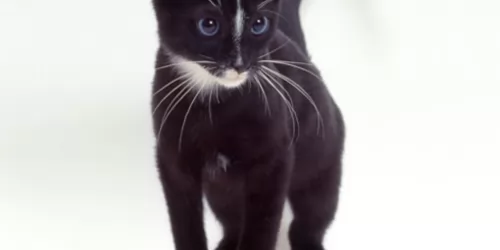 This is a fairly new cat breed that was discovered in New Mexico and its a rare cat. It was in 1984 that the cat was identified.
This is a fairly new cat breed that was discovered in New Mexico and its a rare cat. It was in 1984 that the cat was identified.
There was a feral colony of cats and one particular, a tortoise-shell female was selected to be mated with male cats of no particular description. Her kittens were born with deep-blue eyes, showing that the gene was dominant.
The unusual cat breed was named Ojos Azules which means ‘Blue Eyes’ in Spanish.
The Ojos Azules comes with both short and long hair. The cat was accepted for registration by TICA in 1991.
Only cats with the recognizable deep blue eye gene have been called Ojos Azules.
There was a time when it was discovered that cranial defects could be linked to the gene, and while breeding was temporarily suspended, it is back on track.
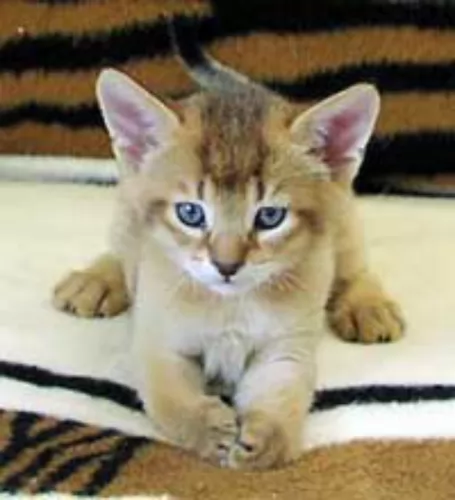 The Chausie is a medium to large cat with a long body and long legs. In fact, the hind legs are somewhat longer than their front legs, and they’re able to easily leap into the air and up onto high perches. Some people say these cats look like Pumas.
The Chausie is a medium to large cat with a long body and long legs. In fact, the hind legs are somewhat longer than their front legs, and they’re able to easily leap into the air and up onto high perches. Some people say these cats look like Pumas.
The adult Afro-Chausie can weigh between 5 to 9kg and they stand in height from 35cm to 45cm and sometimes taller, both male and female.
The ears of the cat are broad and tall and the almond-shaped eyes are a yellow to green shade. The TICA Chausie breed standard says that the cat comes in 3 colors – a black/brown ticked coats, solid black and black grizzled tabby, but in fact, they come in quite a few other colors and patterns too.
Your Afro-Chausie is an intelligent, loyal, social and athletic cat that is also playful. They love their human companions and will form a deep bond with them, making it difficult to rehome him later on.
They don’t like being alone, in fact to such an extent that they will befriend dogs in the home too. This is such an active cat and you can even train him to walk on a leash.
It’s a cat that also loves water and Similar to Bengals and Savannahs, this breed, too, enjoys water. This cat will form deep bonds with owners, hence rehoming has been known to be particularly challenging with this breed
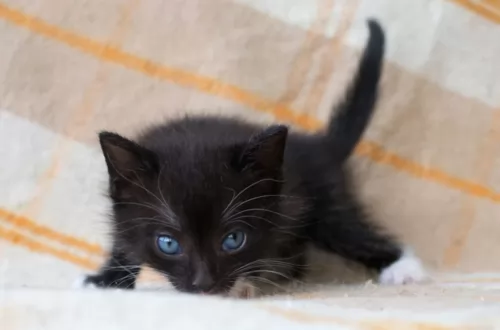 The beautiful Ojos Azules is a medium-sized cat and weighs in at between 3 and 5kg.
The beautiful Ojos Azules is a medium-sized cat and weighs in at between 3 and 5kg.
The cat’s most amazing round blue eyes are one of its most extraordinary features.
The gene in this cat isn’t linked to any particular fur color or pattern, so that means some of these cats will have a black coat but still have the blue eyes. The coat of the cat comes in many colors and is short and silky. Sometimes you’ll find some white markings on the paws and tail.
Not much is known of this cat breed because it is such a rare cat. Very few have owned this cat, but it seems as if, according to the people who have owned them, they are loving, friendly cats.
The small number that have been owned as domestic pets are said to have had balanced, loving temperaments, with the ability to show affection for their human owners.
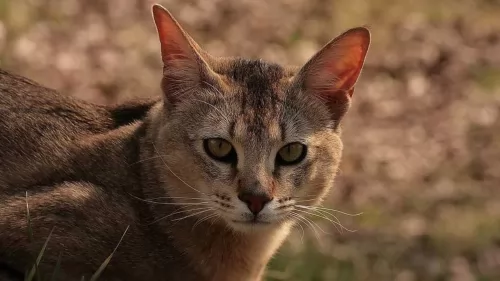 The Chausie loves human contact and they love games with their human family.
The Chausie loves human contact and they love games with their human family.
They’re intelligent and are constantly looking for things to do. They are athletic and have plenty of energy. They’re social, playful and make great playmates for children who have been taught to respect animals.
When you bring an Afro-Chausie into your home, you can expect to have a lot of action and entertainment with this beautiful cat.
 The Ojos Azules cat, apart from its amazing eyes, is a regular cat that requires the same devotion from his human family that other cats enjoy.
The Ojos Azules cat, apart from its amazing eyes, is a regular cat that requires the same devotion from his human family that other cats enjoy.
Because this cat is so rare it is unlikely that you have one, but whatever furry feline friend you have, treat it with love and attention. The worst thing humans can do is to buy a pet, become bored with it, and then discard it.
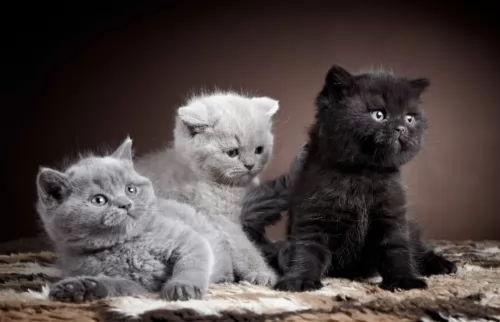 With good health, your Afro Chausie can live to be anything between 12 – 16 years of age. These cats are prone to developing food allergies, and this is why it is important to feed your Chausie high-quality food.
With good health, your Afro Chausie can live to be anything between 12 – 16 years of age. These cats are prone to developing food allergies, and this is why it is important to feed your Chausie high-quality food.
They’ve got fragile digestive systems and many are gluten intolerant.
All kinds of parasites can invade your Afro-Chausie’s body – internally and externally so be sure to have your Chausie checked over for parasites such as tick and fleas, worms and mites.
Check your Chausie for putting on too much weight as these cats have a huge appetite.
You just have to bear in mind that these cats can develop any of the illnesses that other domesticated cats get
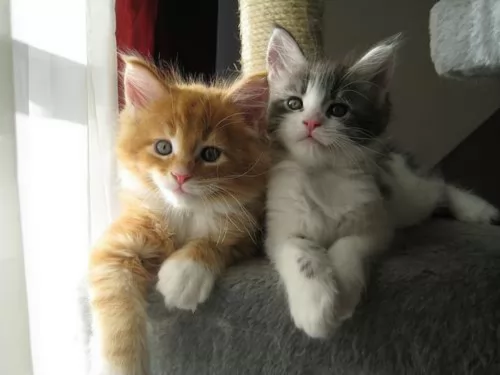 There don’t seem to be too many breed-specific health conditions associated with the Ojos Azules.
There don’t seem to be too many breed-specific health conditions associated with the Ojos Azules.
Having your cat spayed or neutered is beneficial to the cat long-term. Not only that, but it prevents unwanted pregnancies. Thousands of unwanted cats land up in animal shelters or are euthanized every year.
When you bring a new Ojos Azules kitten into the home, you will need to ensure the kitten is vaccinated, but also ensure he is tested for- and free of parasites.
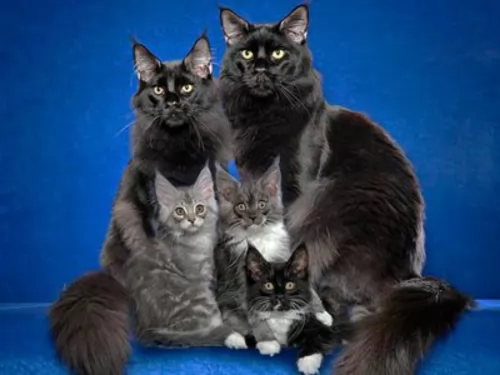 With their short coats, they only need to be brushed once a week as they are moderate shedders.
With their short coats, they only need to be brushed once a week as they are moderate shedders.
Provide your cat with a quiet place to sleep and which is comfortable and dry.
A cat tree can be useful for allowing your cat to climb and scratch.
Chausies are essentially meat-eaters. They don’t want to eat fruit and nuts. One of the Chausie’s ancestors was a wild cat and this is why they don’t eat the same foods as what your dog does.
Every cat thrives on a high-protein, low-carbohydrate diet. A dog’s diet with scraps from the table as well as human food can be fatal for your Chausie if it becomes your cat’s regular food.
He requires a diet of quality meat – beef, chicken, fish and organs – all foods that are easily digestible for your cat. Cats also need taurine from muscle meat such as shellfish and fish.
Always make sure your Chausie has access to a constant supply of fresh, cool water.
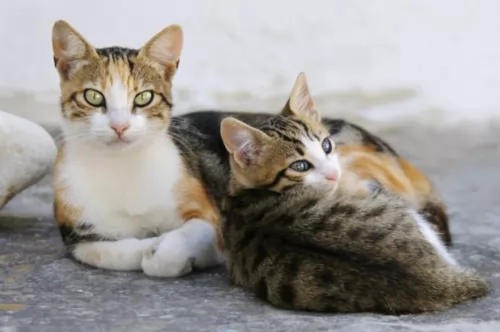 There are no particular requirements when caring for the Ojos Azules. Like other cat breeds, this cat also needs to be loved and well looked after.
There are no particular requirements when caring for the Ojos Azules. Like other cat breeds, this cat also needs to be loved and well looked after.
Contrary to what many people think, a cat isn’t a non-maintenance creature that can look after itself. There are many cat breeds that crave the companionship of their human owners and they need to be looked after carefully.
Ensure the best quality cat foods there are. There are many commercial cat foods and you want the high-quality ones with meat listed as the top ingredient.
A cat is a carnivore and meat is imperative for your cat to be healthy. If you feed your cat one of the commercially manufactured cat foods there are, you’ll find the food comes as dry, semi-moist, and canned.
The food you choose will come down to you and your cat’s preferences. If in any kind of doubt, speak to your local vet for recommendations. Remember, that an old cat, a pregnant cat or an ill cat will require a certain type of food.
You’ll need to coax your cat to use a litter box. The litter box should be in a quiet place where he can do his business in peace. Make sure you have the tools to scoop out your cat’s feces every single day. Cats like a clean litter box.
Provide the cat with a scratching post. If you have a cat as a pet, you must know it will scratch. You can’t change your cat’s behavior but you can do something about it to deter your cat scratching your furniture. You can buy him a scratching post so that he can scratch the way all cats do.